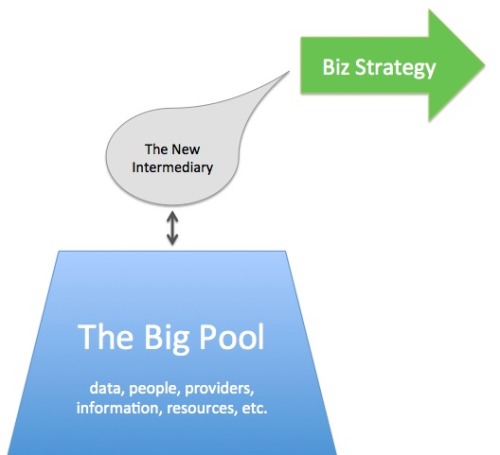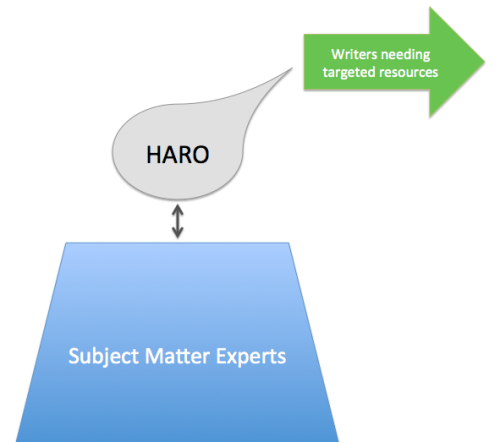The New Intermediation: Specialized Domains
February 20, 2013 3 Comments
If you have been in a business domain for a long time, acquiring a deep knowledge and broad network, you may well have an opportunity to carve out a unique (you-based) business role for your future. Of all people, you can be one of the new intermediaries.
In an introductory post, I opened up the idea of potential business opportunities that exist by thinking about The New Intermediation. The Ugly Graphic™ below depicts how this works:
Just yesterday, I was handed a brand-new business card by someone I’d spent a few hours with several weeks back. This experienced professional was being laid off – there are always ups and downs in the pharma/biotech realm, and some great folks lose positions regularly because of factors having nothing to do with their performance.
Anyway, this person had a deep area of domain expertise, able to fill an information and business-building need that few could touch. I encouraged them to launch a consultancy (they did), and yesterday, I got the news that their first client had signed up for a 6-month engagement!
How awesome is that? From corporate dependence to carving out your own path – isn’t that what so many should be doing right now?
Another friend is steadily positioning himself for a unique intermediary role in his industry (agriculture-related) due to his immense knowledge and hard-won reputation as a very knowledgeable guide for both growers and producers. Make no mistake, however – his reputation as a value-creator is based on incredibly hard work in a specialized domain. This role is not for kids fresh out of college.
Just saw this post by Rohit Bhargava, who is taking on the role of a Marketing Concierge. What is that? An expert who comes alongside the client, and makes relationships and workflow better with their agencies. Read the post and you’ll see why he can do this – deep domain experience. He’s a new intermediary. My friend Tom Martin serves as a digital adviser for higher-level marketers, who cannot possibly keep up with all the digital ferment. Tom is immersed in digital AND knows what agencies/marketers need. He’s a new intermediary.
In each case, people pay their dues for years working for others (building up domain knowledge and reputation), then get to a position when it’s time to be an intermediary. If you’re in your 40’s and 50’s and wondering if you’re being bypassed – if you’re all washed up – think again. This is prime time to be a value-creator by having a foot firmly planted in two realms.
I find that people with this type of depth and track record generally need a gentle push – a little outside permission-giving. “This is your sweet spot. You’re ready now. No-one else can do this like you can. Here’s your market[place]. Go!“
Think beyond the next job title in someone else’s hierarchy. Build toward your unique place of adding value “in the middle.” Maybe you should be one of the new intermediaries!
Previous Connection Agent posts on The New Intermediation:
The New Intermediation in Publishing
The New Intermediation: Curation










Recent Comments